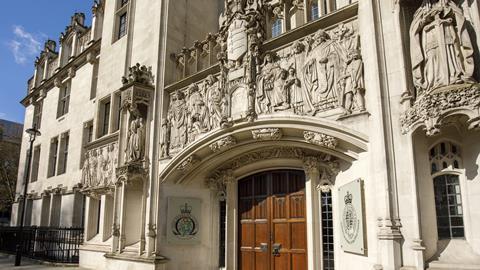A family-owned travel agency has lost its Supreme Court appeal after justices found it was not subjected to reprehensible conduct, in an important ruling for commercial solicitors.
Pakistan International Airline Corporation v Times Travel considers whether a party can set aside a contract on the ground that it was entered into as a result of the other party threatening to do a lawful act.
The case concerns a dispute between Pakistan International Airline Corporation (PIAC) and Times Travel, a small travel agency based in Birmingham. PIAC entered into a contract with Times Travel in 2008, under which Times Travel agreed to act as ticketing agent for the airline. At the relevant time, PIAC was the only airline operating direct flights between the UK and Pakistan, and Times Travel relied almost exclusively on the sale of its tickets.
By 2012, a large number of PIAC's ticketing agents had either commenced or threatened proceedings to recover substantial sums they said PIAC owed by way of commission. The same year, PIAC gave lawful notice of the termination of its existing agency contracts and offered Times Travel a new contract. The new contract contained a waiver by Times Travel of its claims for unpaid commission under the prior arrangements. Times Travel accepted and signed the new contract.
However, the travel agency subsequently brought a claim against PIAC for the unpaid commission, arguing that it could rescind the new agreement for lawful act economic duress.
The Supreme Court said there are two essential elements that a claimant needs to establish to rescind the contract: first, that the threat or pressure by the defendant must have been illegitimate and, second, that the threat or pressure must have caused the claimant to enter the contract. Economic duress also has a third element: the claimant must have had no reasonable alternative to giving in to the threat or pressure. The appeal solely concerned whether PIAC’s threat illegitimate.
In judgment, Lord Hodge found that Times Travel cannot rescind the new agreement and PIAC had not displayed reprehensible conduct in the sense used in the case law. This was bolstered by PIAC’s genuine belief that it was not liable to pay the disputed commission, he said.
'Lawful act economic duress was not made out on the facts of this case because the threatened lawful act was not coupled with a bad faith demand. On the facts found by Warren J, Times Travel failed to establish bad faith by PIAC in the specific sense relating to PIAC’s genuine belief as to its not being contractually liable for the unpaid commission. The Court of Appeal correctly applied the “bad faith demand” requirement in this case. I would therefore dismiss the appeal.'




























3 Readers' comments